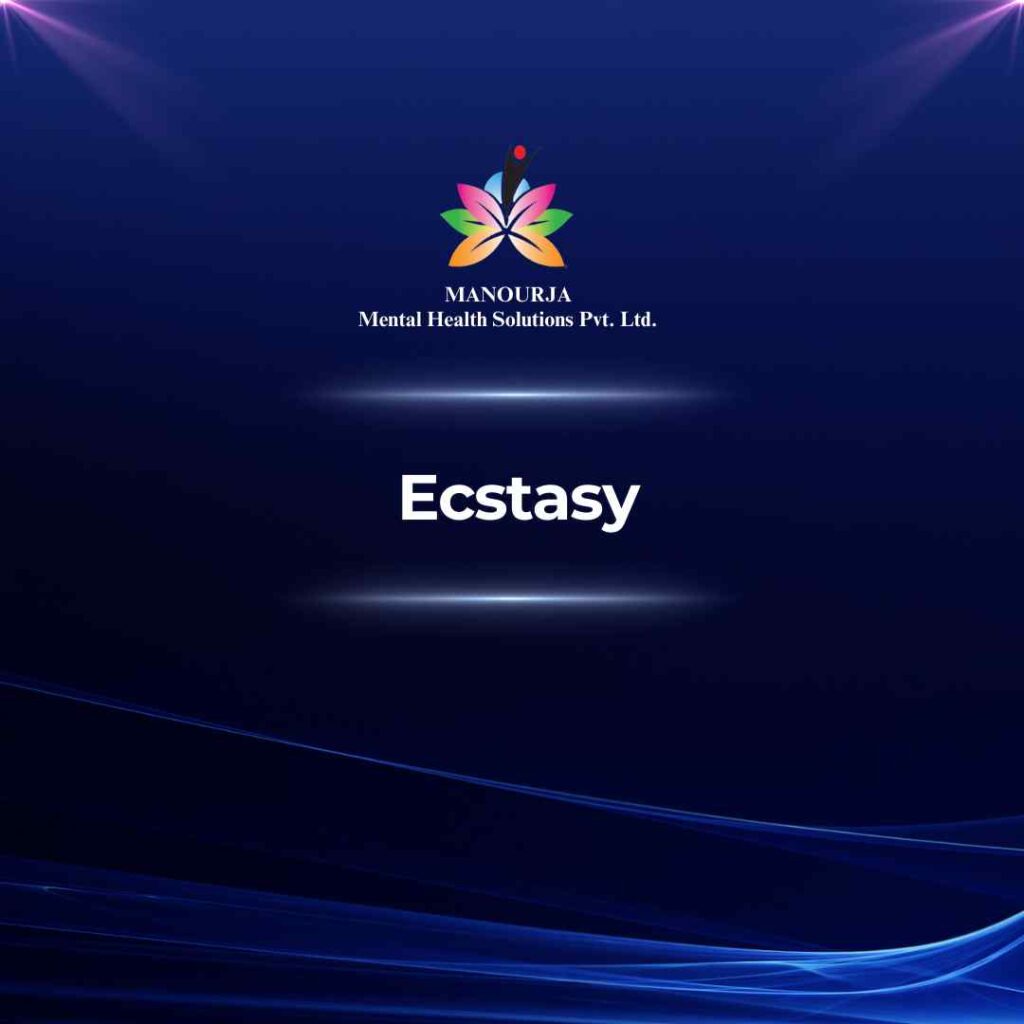Ecstasy

In the context of mental health, ecstasy refers to an intense feeling of happiness, pleasure, or excitement that goes beyond normal emotional experiences. This heightened state of emotion can be both a symptom and a sign of certain mental health conditions. It is important to differentiate this psychological state from the street drug known as ecstasy (MDMA), which can induce similar feelings but is unrelated to the clinical context discussed here.
Ecstasy as a Sign and Symptom of Mental Illness
Ecstasy, as an emotional state, can indicate underlying mental health issues when it occurs inappropriately or excessively. While feeling joyful and ecstatic is part of normal human experience, persistent or extreme ecstasy that affects daily functioning may signal a mental health disorder. In such cases, ecstasy might manifest as a symptom during specific episodes or phases of an illness.
Mental Illnesses and Conditions Associated with Ecstasy
Bipolar disorder is characterized by mood swings that include manic and depressive episodes. During manic phases, individuals may experience intense ecstasy, euphoria, and elevated mood. This state often leads to impulsive behavior, decreased need for sleep, and grandiosity, which can disrupt daily life and relationships.
In schizophrenia, particularly during psychotic episodes, individuals might experience ecstasy as part of their delusions or hallucinations. For example, a person might feel an overwhelming sense of euphoria related to their delusional beliefs or auditory hallucinations.
- Substance Use Disorders
Certain substance use disorders, especially those involving stimulant drugs like cocaine or methamphetamine, can induce states of ecstasy. These substances alter brain chemistry, leading to intense euphoria and pleasure. However, this drug-induced ecstasy is temporary and often followed by significant negative consequences.
- Temporal Lobe Epilepsy
Temporal lobe epilepsy can produce ecstatic auras or seizures where individuals feel an intense rush of euphoria or ecstasy. These episodes are neurological in origin and linked to abnormal electrical activity in the brain.
Cyclothymic disorder is a milder form of bipolar disorder, characterized by chronic mood fluctuations. Individuals with this disorder may experience periods of hypomania, which can include feelings of ecstasy and elevated mood.
In some cases of obsessive-compulsive disorder, individuals might experience brief moments of ecstasy upon completing a compulsion or ritual. This temporary relief and pleasure are part of the reinforcement cycle that maintains the compulsive behavior.
While post-traumatic stress disorder is typically associated with negative emotions, some individuals might experience euphoric recall of past events or dissociative states where they feel ecstasy. These experiences are complex and can vary widely among individuals with PTSD.
- Psychotic Disorders
Other psychotic disorders, apart from schizophrenia, can also include episodes where ecstasy is felt. These might be related to delusional beliefs or hallucinations that bring intense pleasure or joy to the individual.
Conclusion
Ecstasy, as an emotional state, can be a sign of several mental health conditions, especially when it occurs inappropriately or excessively. Understanding the context and frequency of these ecstatic episodes is crucial for accurate diagnosis and effective treatment. Managing conditions associated with ecstasy often involves a combination of medication, therapy, and lifestyle adjustments to ensure balanced emotional health.
At MANOURJA, we believe in the transformative power of counseling. Our experienced therapists offer a safe and supportive space where you can explore your thoughts, emotions, and challenges. Through personalized counselling sessions, we’ll work together to develop coping strategies, build resilience, and achieve lasting positive change. Discover the path to a healthier, happier you with MANOURJA counselling services.
MANOURJA Rehabilitation Services
At MANOURJA, we’re dedicated to helping you in rebuild your life, after difficult times. Our rehabilitation services focus on understanding what you need to move forward, whether you’re recovering from addiction, trauma, or any psychological – social challenges. We create personalized plans, that are all about helping you, regain your strength and find hope again. With a caring team by your side, you’ll have the support to make real progress and take steps toward a brighter, healthier future.
